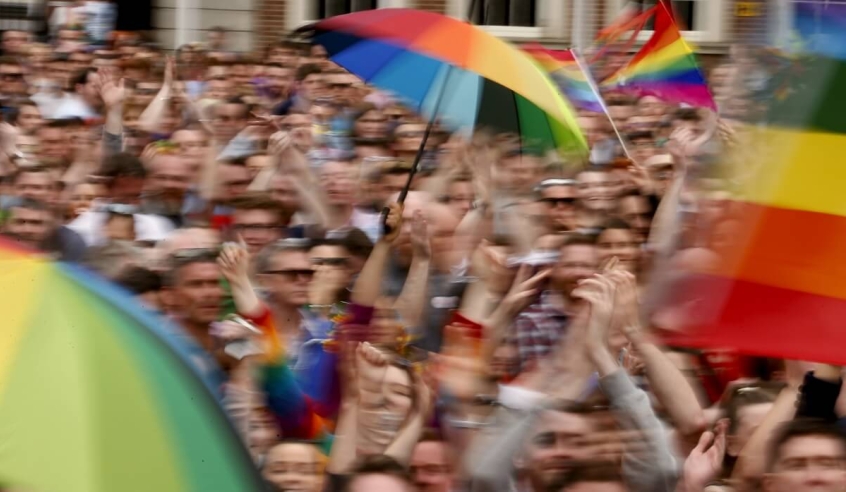Yesterday's confirmation by Pope Francis that he will visit Ireland on August 25 and 26 presents the prospect of a fascinating trip to a changing country that remains, in a very deep way, culturally Catholic but is no longer wedded to the conservative social approach associated with the Church.
As has been noted widely, the visit will come only three months after the forthcoming referendum on abortion in May, in which, according to current predictions, a majority will defy the Catholic Church and vote in favour of repealing the eighth amendment and allowing unrestricted abortion up to the 12<sup>th week of pregnancy.
In January, a poll found that 56 per cent would back liberalisation of the law, with 29 per cent against and 15 per cent undecided or unwilling to say. Among those aged 18 to 24, support for change was at 74 per cent, compared with 36 per cent among over-65s.
If these projections ring true, this will not be the first time that the Irish public has gone against the strong advice of the Church on a major social issue: In May 2015, 62 per cent voted to legalise same-sex marriage.
Then there is the sheer spectacle of the first papal visit to the country since the trip by John Paul II in 1979. Whatever disputes the mainstream majority may have with the Church – not to mention over its reputation when it comes to abuse – that there will be a massive display of love for Pope Francis is not in doubt.
For there is something about this pope, unlike, perhaps, his apparently more conservative predecessor Benedict XVI, that may appeal to the more liberal minded young Irish man and woman. It is of course a myth that Francis is changing doctrine on any major issue – yes, including communion for the divorced and remarried – but he is gifted with the kind of popular touch that is likely to go down a treat in Ireland.
He is also likely to make several gestures that will further endear him to the people. Dublin's Archbishop Diarmuid Martin has said the pope 'will want particularly to meet with the poor'.
Martin is president and host of the international World Meeting of Families, which takes place from August 21 to 26, at which the pope will preside at the concluding mass, most likely to be held in Croke Park on Sunday, August 26.
'He is coming for the World Meeting of Families, that is his primary purpose. He will focus on the many difficulties and challenges families have to face,' Martin has said.

'He doesn't want big shows, he wants to be just present with those who are marginalised,' Martin added.
But there is speculation that Francis may visit a prison, as is his wont in Italy, and any encounters with the 'marginalised' are likely to be electric.
However, there is one surprise – a major gesture that many have wished for – that appears to be off the agenda.
Many in the region and elsewhere had hoped that the pope would visit Northern Ireland, deemed too sensitive back in 1979 when John Paul II came. But there was no mention of the North in the official announcement of the trip yesterday.
And this appears to be thanks, alas, to Brexit, and the dreaded prospect of a return to a 'hard border' between Northern Ireland and the Republic that this brings.
Because the UK government plans to leave the single market and the customs union, and the fact that the EU will seek to police those, it remains difficult to see how a hard border could be avoided. The issue has become key to the tangled Brexit negotiations, with the former prime ministers Sir John Major and Tony Blair issuing strong warnings over the implications for Brexit of the Northern Irish peace process crystalised by the 1998 Good Friday Agreement instigated by Major and sealed by Blair.
As a senior Vatican source with no agenda, no Remain axe to grind, told me of the issue last year, when the trip was being planned: 'It complicates things quite a bit'.
Why? Because the concept of a divided Ireland is anyway controversial, especially among Catholics, and a visit by the pope at a time of political uncertainty and unrest could be seen a an endorsement, however faint, of the concept of that divisive, hard border. Prior to the Brexit vote in 2016, the North and South were making very serious inroads towards peace, and a trip to the former by Francis would have been seen as backing nothing other than peace. Instead, it now would have much more complicated connotations in this most sensitive of former conflict zones.
Therefore, it appears that a potential papal trip to Northern Ireland has been the first major international event that has fallen victim to Brexit.
That aside, the visit will doubtless be fascinating as a spectacle in itself – and as a litmus test as to how a culturally Catholic but ever-changing and liberalising country welcomes the global leader of the Catholic Church.
Follow James Macintyre on Twitter @James_Macintyre













